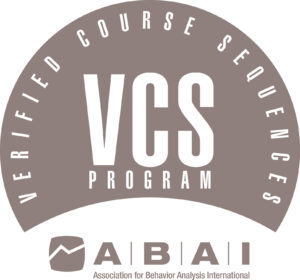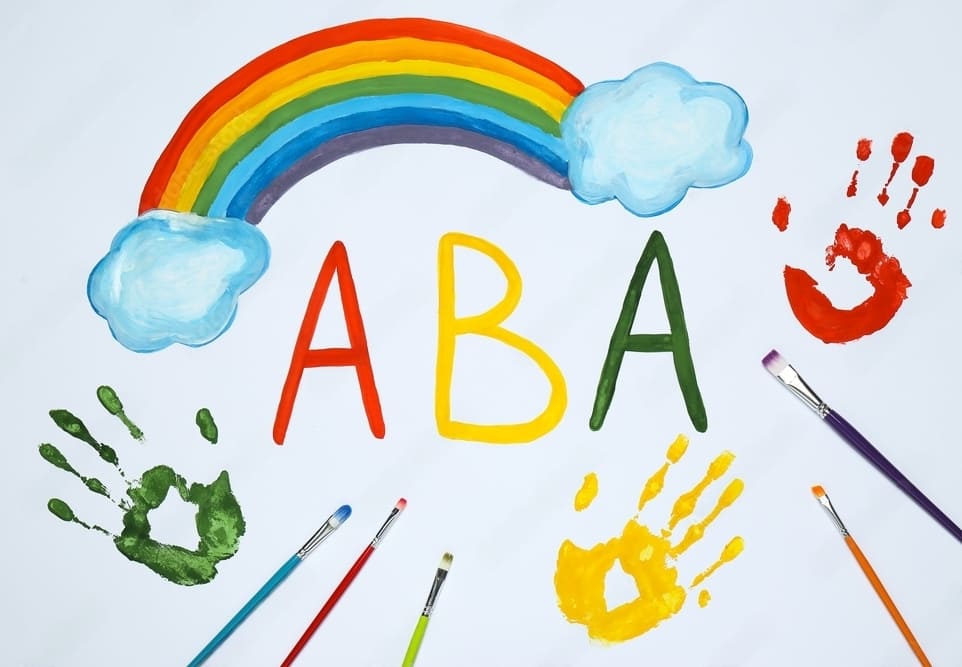Overview
The Graduate Certificate in Applied Behavior Analysis (ABA) program is designed to meet the needs of working professionals by providing flexible, affordable, and convenient access to coursework through a 21-credit fully online program. The program follows the Behavior Analyst Certification Board® (BACB®) 5th Edition Task List to meet the educational coursework requirements for eligibility to take either the Board Certified Behavior Analyst® (BCBA®) examination or the Board Certified Assistant Behavior Analyst® (BCaBA®) examination.

The program provides students with the fundamental skills and underlying principles and knowledge of ABA. Students will study the foundations of ABA including philosophical underpinnings, concepts and principles, measurement, data display and interpretation, and experimental design. In addition, students will learn practice-oriented skills including the ethics code for behavior analysts, behavior assessment, behavior-change procedures, selecting and implementing interventions, and personnel supervision and management.

ABAI Verified Course Sequence
Program Information
landing
-
Program Structure
-
Curriculum
-
Admissions Requirements
| ABA501 Philosophical Underpinnings of ABA | 3 Credits |
| ABA502 Basic Principles and Characteristics of Behavior | 3 Credits |
| ABA503 Behavior Assessment | 3 Credits |
| ABA504 Measurement, Data Display, and Interpretation; Experimental Design | 3 Credits |
| ABA505 Behavior Change Procedures | 3 Credits |
| ABA506 Selecting and Implementing Interventions, Personnel Supervision and Management | 3 Credits |
| ABA507 Ethics Code for Behavior Analysts | 3 Credits |
| Total | 21 Credits |
Graduate Certificate in Applied Behavior Analysis
Program Credits: 21 Semester Credit Hours
Program Overview:
The program provides students with the fundamental skills and underlying principles and knowledge of ABA. Students will study the foundations of ABA including philosophical underpinnings, concepts and principles, measurement, data display and interpretation, and experimental design. In addition, students will learn practice-oriented skills including the ethics code for behavior analysts, behavior assessment, behavior-change procedures, selecting and implementing interventions, and personnel supervision and management.
Overall Program Outcomes:
Upon completion of this program, students are expected to be able to:
- Identify the goals of behavior analysis as a science.
- Demonstrate an understanding of behavior, response, and response class.
- Demonstrate an understanding of measurement, data display, and interpretation in applied behavior analysis.
- Demonstrate an understanding of single-subject designs.
- Demonstrate knowledge of the ethical responsibilities of behavior analysts to their clients, supervisees, colleagues, and other stakeholders.
- Conduct an appropriate and systematic behavior assessment.
- Demonstrate an understanding of behavior-change procedures.
- Gather and analyze data that will inform the selection of appropriate intervention plans.
- Demonstrate knowledge of performance monitoring, feedback, and reinforcement systems.
Please see below for summaries of each course within the Graduate Certificate in Applied Behavior Analysis program.
ABA501 Philosophical Underpinnings of ABA 3 Sem. Cr.
This course focuses on the scientific and philosophical underpinnings of applied behavior analysis. It traces the historical development of radical behaviorism to current applied behavior analysis and professional practice. Through the writings of B.F. Skinner and other specialists in the field, students will study the underlying assumptions of the science of behavior analysis including selectionism, determinism, empiricism, parsimony, and pragmatism. The content is based on the Behavior Analyst Certification Board® (BACB®) 5th edition Task List.
ABA502 Basic Principles and Characteristics of Behavior 3 Sem. Cr.
This course focuses on the basic concepts and principles of Applied Behavior Analysis. The course content is designed to prepare students for the application of behavioral principles in various settings, including home and residential facilities. Students will learn how to identify the underlying assumptions of behavior analysis, distinguish between behaviorism, the experimental analysis of behavior and applied behavior analysis, demonstrate an understanding of the dimensions of applied behavior analysis, and interpret articles from the behavior analytic literature. The content is based on the Behavior Analyst Certification Board® (BACB®) 5th edition Task List.
ABA503 Behavior Assessment 3 Sem. Cr.
In this course, students are introduced to assessment methodology of applied behavior analysis, including ethical aspects. Students will learn to assess and analyze behavior in the A-B-C format, understand scatter plot data, and conduct interviews. In addition, they will learn to address issues in behavioral assessment, implementation, and the management and supervision of behavior analysis services. Students will learn to conduct a descriptive assessment and functional analysis of problem behavior as well as interpret functional assessment data. The content is based on the Behavior Analyst Certification Board® (BACB®) 5th edition Task List.
ABA504 Measurement, Data Display and Interpretation, Experimental Design 3 Sem. Cr.
In this course, students will learn the concepts of measurement, data display and interpretation in relation to applied behavior analysis. The content includes the selection of appropriate experimental designs for the evaluation of interventions, the selection of relevant measurement methods, and display data for evaluation and determining effectiveness of interventions. Students will review the logic and benefits of single subject designs vs. group research design approaches as well as identify the most appropriate experimental evaluation method for the situation, behavior, and type of setting and intervention being applied. The content is based on the Behavior Analyst Certification Board® (BACB®) 5th edition Task List.
ABA505 Behavior Change Procedures 3 Sem. Cr.
In this course, students will identify applied behavior analytic procedures to facilitate effective behavior change. They will learn to identify the ultimate outcomes for the person or persons involved, identify sequential or concurrent intermediate outcomes, identify the behavior or behaviors targeted for change in observable and measurable terms, and establish positive interpersonal relationships using behavior change procedures. Students will learn how to select procedures based on hypotheses generated from behavioral assessment data; select behavior change procedures that are consistent with the principles of behavior and published research, when more than one procedure is indicated; select behavior change procedures based on competencies of the behavior analyst and other persons who will be carrying out the program; and when weakening behavior, develop a behavior replacement plan using the least restrictive interventions likely to be effective given the function of the behavior to be weakened. The content is based on the Behavior Analyst Certification Board® (BACB®) 5th edition Task List.
ABA506 Selecting and Implementing Interventions, Personnel Supervision and Management 3 Sem. Cr.
This course provides students with the knowledge of personnel supervision and management as it relates to applied behavior analysis. Students will learn to determine procedures and methodologies in personnel supervision and management. Through applied examples and scenarios, students will learn critical skills in developing and maintaining clear expectations for the supervisor-supervisee relationship, working with supervisees to establish appropriate goals in their skill development, and how to provide meaningful corrective feedback with opportunities for practice to enhance the supervisee skill set. Students will learn how to use function-based strategies to improve personnel performance and to evaluate the effects of supervision. The content is based on the Behavior Analyst Certification Board® (BACB®) 5th edition Task List.
ABA507 Ethics Code for Behavior Analysts 3 Sem. Cr.
The course addresses behavior analysts' ethical responsibility to the profession of behavior analysis and explores the role of behavior analysts as supervisors. This includes ethical responsibility to supervisees, trainees, colleagues, clients, and stakeholders. Additionally, the course examines the requirements of professional responsibility in practice as a BCaBA or a BCBA. Students will study the responsibilities of the BCaBA or BCBA when making public statements and when involved in research. The content is based on the Behavior Analyst Certification Board® (BACB®) 5th edition Task List.
To apply for admission to the program, you must fulfill one of the following admission options:
- Option One: An earned bachelor’s degree with a minimum 2.5 GPA.
- Option Two: An earned master’s degree or higher.
Degrees must be earned from institutions accredited by an agency recognized by the U.S. Department of Education and/or the Council for Higher Education Accreditation (CHEA) or accepted foreign equivalent where the language of instruction was English. For students who earned their degrees in languages other than English, please click here for additional requirements.
To document prior education, students are required to submit official transcripts

TUITION
From as little as $4725* for the full 21-credit program
*Plus $300 Technology Fee

DURATION
8 or 16 week schedule

CREDITS
3 credits per course
21 credits total
What is Applied Behavior Analysis?

Applied Behavior Analysis (ABA) is a therapeutic approach that specifically targets the improvement of individual behaviors. These may include social skills, communication, academics, and adaptive learning skills, such as fine motor dexterity, hygiene, grooming, domestic capabilities, punctuality, and job competence. ABA has proven to be effective for individuals with psychological disorders, including Autism, as well as other developmental, medical, and behavioral conditions such as intellectual disabilities, dementia, addiction, and traumatic brain injury. It can be implemented in various settings, including schools, workplaces, homes, and clinics. Consistent use of ABA has been shown to significantly enhance behavior and skill development while reducing the need for special services, according to Psychology Today.
Our online format provides flexibility to complete coursework when convenient and gives the ability to attend classes regardless of location.
When It’s Used
Behavioral therapy, also known as ABA, is a widely used therapeutic intervention that has proven effective in helping individuals across various conditions. This therapy is beneficial in teaching individuals new skills, improving social interactions, and maintaining positive behaviors. Furthermore, it aids in transferring learned skills and behaviors from one setting to another, minimizing negative behaviors in challenging situations. Behavioral therapy is helpful in managing various mental and physical health conditions and can benefit people of all ages. For instance, it can help elderly individuals adjust to age-related losses such as memory, strength, and relationships. With its versatility, behavioral therapy has become an important tool in helping individuals manage and overcome lifestyle challenges.
A Pathway to Board Certification
The certificate is an important step in becoming either a board-certified behavior analyst (BCBA) or a board-certified assistant behavior analyst (BCaBA). If you are interested in pursuing either of these credentials, there are a few requirements you need to complete, in addition to earning your certificate.
To be eligible for the BCBA exam, you must:
- Have a master’s degree in any field or higher
- Complete supervised field experience hours (Note: supervision hours are managed by students and their supervisors, independent from their program at Martinsburg College)
To be eligible for the BCaBA exam, you must:
- Have a bachelor’s degree in any field or higher
- Complete supervised field experience hours (Note: supervision hours are managed by students and their supervisors, independent from their program at Martinsburg College)
Supervision
To sit for either the BCaBA or the BCBA certification examination, applicants must fulfill specific educational and supervisory requirements. The Martinsburg College graduate certificate program meets the coursework requirements for certification.



